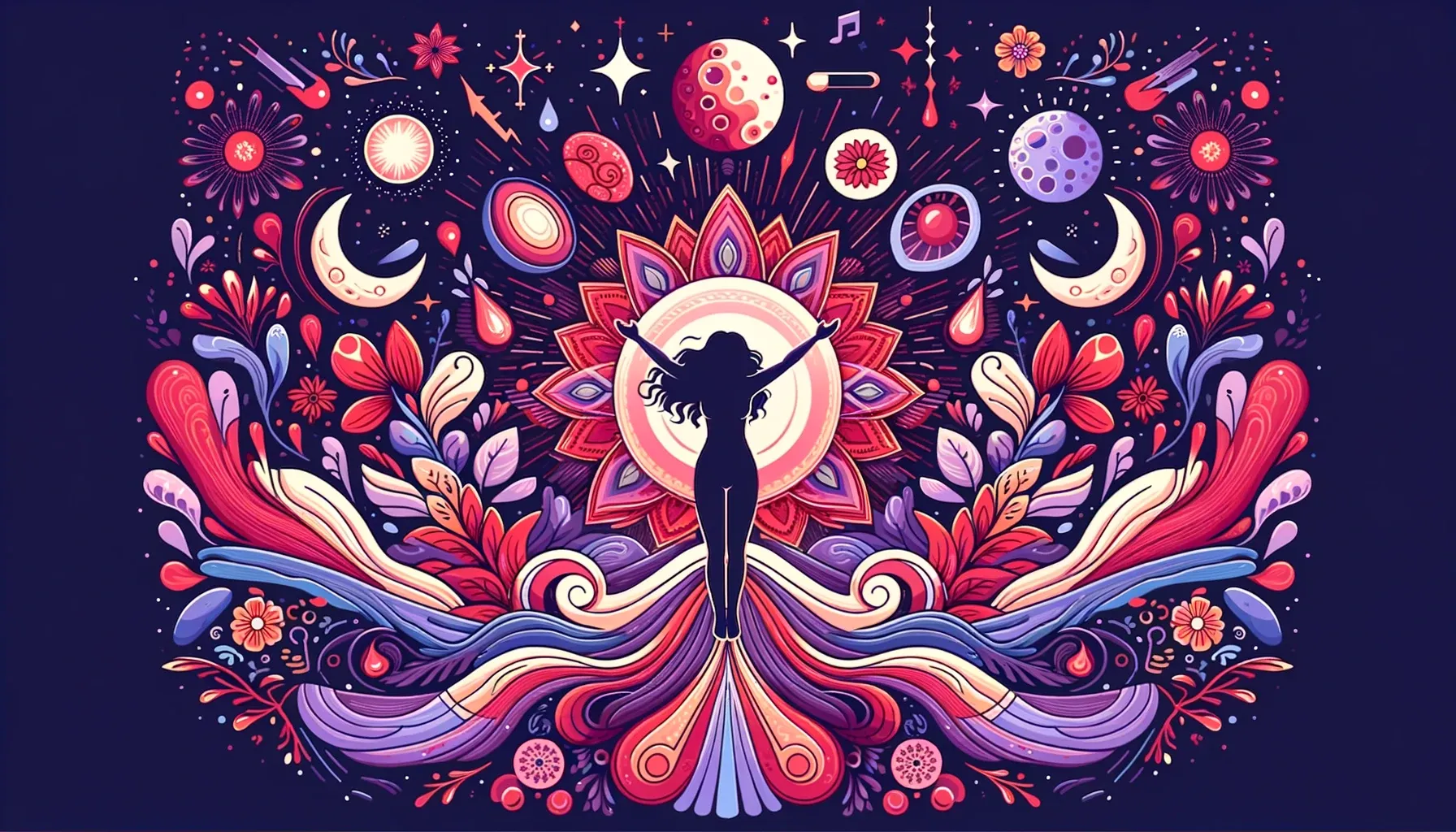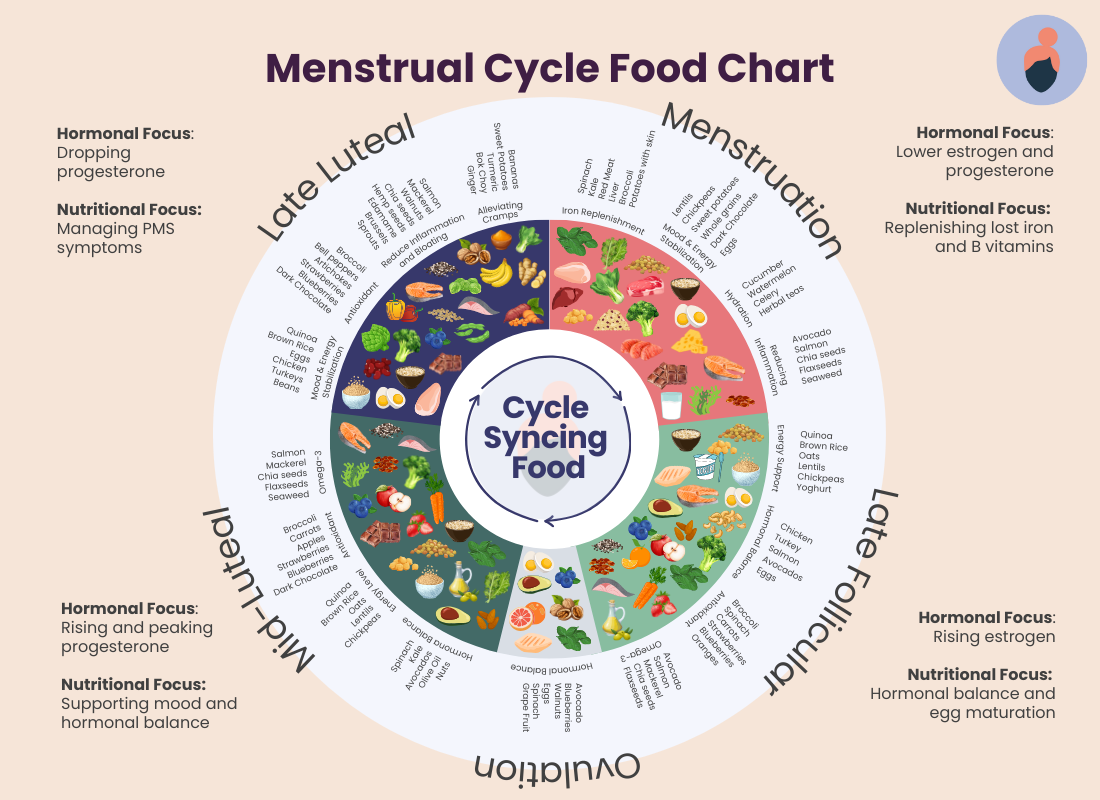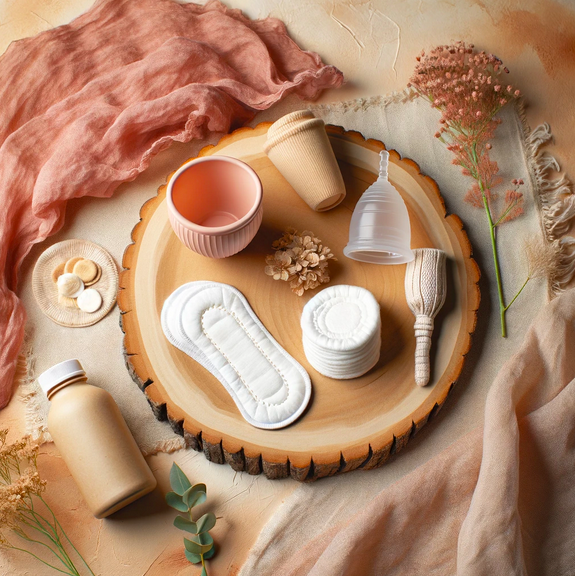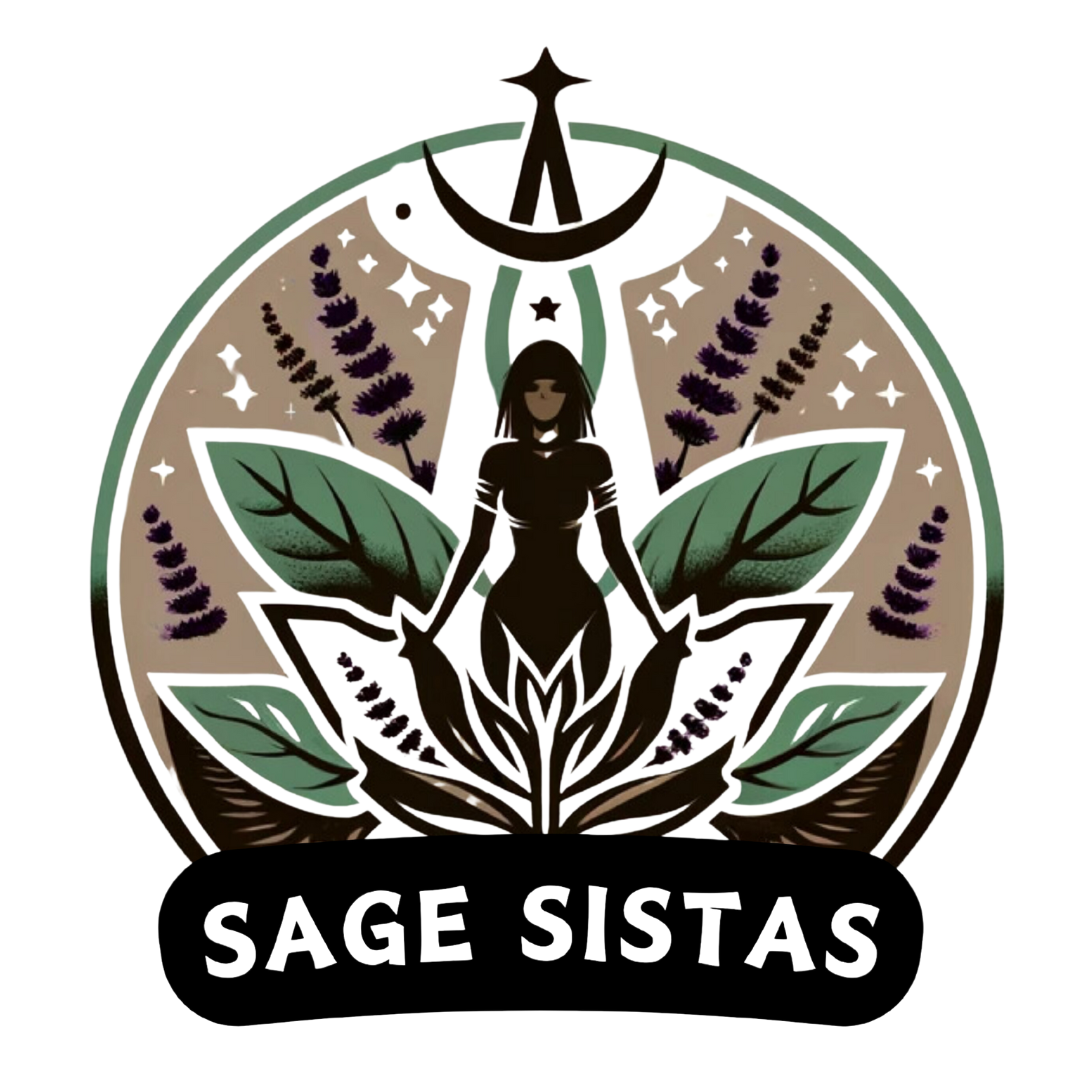Period Pride: Why Loving your Period Matters
Discover a holistic view of period health, from cultural celebrations to nutrition tips. Embrace technology and nature's rhythms for empowered menstrual wellness. This article blends personal narratives, cultural insights, and practical advice to advocate for a positive approach to menstruation.

In a world where menstruation has often been met with whispers, discomfort, and undue stigma, we're set to challenge these narratives. Unraveling the cultural and societal layers that have obscured the true essence of our cycles, we discover an empowering story—one that not only celebrates the rhythmic flow of womanhood but also reconnects us with the natural cycles that mirror our own and invites us to honor these sacred bodily processes.
Change of Perspective
My own perspective on menstruation underwent a profound transformation after becoming a mother. This pivotal life change reshaped not only how I view my own body but also how I perceive my monthly cycle. For the first time, I found myself genuinely appreciating my period. This regular bleeding phase, which I had once greeted with a sigh of inconvenience, now stood as a testament to my health and the orderly functioning of my reproductive system. The shift in perception was stark—from lamenting the arrival of my period to welcoming it with a sense of relief and gratitude. "Oh good, amazing, my body is healthy and functioning," became my new mantra, replacing the all-too-familiar groans of annoyance.
This transformation in thought didn't stop at personal gratitude. It opened my eyes to the broader, global context of menstrual health. I began to think of our sisters in regions of the world who face their monthly cycles with little to no resources, making what should be a natural, manageable aspect of life into a daunting challenge. Instead of complaining about the mere existence of blood leaving my body, I started to see it as something sacred—a sign from my body affirming that I'm taking good care of myself and that all is in order.
The natural cycle of menstruation, often shrouded in myths and misconceptions, has been a subject of cultural and societal scrutiny for centuries. Across various cultures, periods have been labeled as impure or taboo, leading to practices where women are isolated during their menstrual cycle, underscoring a deep-seated discomfort with this natural bodily function. In some societies, the onset of menstruation is met with secrecy and shame, a stark contrast to the few cultures that celebrate this transition into womanhood with ceremonies and gifts, acknowledging it as a sign of fertility and strength.
Societal Influences: Patriarchy and Bad Reputation
The complex tapestry of societal views on menstruation is deeply influenced by patriarchal structures, which have historically framed this natural bodily function in a negative light. This perspective, coupled with the period product industry's marketing strategies, often emphasizes hiding or managing menstruation as a problem rather than celebrating it as a facet of female health. Such narratives perpetuate the stigma and shame associated with periods, overshadowing their biological and emotional significance.
In certain cultures, menstruation is unfortunately associated with notions of impurity, leading to discriminatory practices against women. This bias manifests in various ways, such as prohibiting menstruating women from participating in religious activities, entering certain sacred spaces, or even touching objects considered holy. Additionally, women may be barred from cooking for their families during their menstrual cycles, as their temporary impurity is believed to taint the food. These practices not only perpetuate harmful stereotypes but also restrict women's autonomy and reinforce societal taboos surrounding menstruation.
Celebrating the First Period
In contrary to the excluding practices in other cultures the onset of menstruation is marked by celebrations and rituals, recognizing a girl's passage into womanhood with joy and pride. This tradition contrasts sharply with today's tendency to shroud first periods in secrecy and embarrassment. Reclaiming the celebratory approach to first periods can serve as a powerful counteraction to the prevailing culture of shame, encouraging young women to view their menstrual cycle as a natural, empowering aspect of their identity rather than a hidden inconvenience.
Embracing Diversity and Tradition
Around the world, menstruation is marked by diverse traditions that honor a woman's journey into womanhood. These cultural practices not only celebrate this pivotal rite of passage but also play a crucial role in demystifying and destigmatizing menstruation, emphasizing its significance in fertility and overall health.

Embracing Womanhood: Rituals from South India to Sri Lanka
From the vibrant ceremonies of South India's "Ritu Kala Samskara" to the communal celebrations in Sri Lanka, these traditions highlight menstruation as a moment of purity, prosperity, and femininity. These rituals, filled with joy and community support, underscore the positive integration of menstruation within cultural traditions, celebrating the onset of menstruation as a key milestone in a woman's life.
Indigenous Wisdom: Native American Moon Time
Native American cultures offer a profound respect for the menstrual cycle, viewing it as a time of purification, strength, and deep connection to the earth. The "Moon Time" is embraced as a period of power, with ceremonies that honor a woman's connection to the natural world and her role within the community. This reverence for the menstrual cycle showcases the rich tapestry of beliefs and practices that celebrate menstruation as a sacred and empowering experience.\

Menstrual Cycles: Harmonizing with Cosmic Rhythms
The menstrual cycle is a symphony of rhythms that echoes the cyclical patterns of the cosmos, each phase a reflection of the moon’s journey and the Earth's seasons.
In the Menstrual Phase, we retreat as the New Moon does, our bodies calling for rest and reflection during the quiet of Winter—a time for conserving energy and preparing for the renewal ahead.
As we enter the Follicular Phase, our energy rises anew, just like the Waxing Moon's growing light, mirroring the awakening and rebirth that Spring brings to the world around us.
The Ovulation Phase is our time of full bloom, synchronous with the Full Moon's bright illumination, celebrating the abundance and vibrancy of Summer's life-giving peak.
Finally, the Luteal Phase invites us to wind down, paralleling the Waning Moon, as Autumn ushers in a period of release, letting go, and preparation for the cycle to begin anew.
| Menstrual Cycle Phase | Corresponding Moon Phase | Associated Season |
|---|---|---|
| Menstrual Phase | New Moon | Winter |
| Follicular Phase | Waxing Moon | Spring |
| Ovulation Phase | Full Moon | Summer |
| Luteal Phase | Waning Moon | Autumn |
Menstruation and Nutrition

Diet and your menstrual cycle are deeply interconnected due to the profound impact that nutrients have on hormonal balance and overall reproductive health. What you eat can influence hormonal fluctuations, which are the driving force behind the phases of your menstrual cycle. Certain foods can help mitigate symptoms associated with these phases, such as cramps, mood swings, and fatigue, by providing the essential nutrients your body needs to navigate the hormonal changes more smoothly. For example, iron-rich foods combat the iron loss during menstruation, while magnesium and B vitamins can ease premenstrual symptoms in the luteal phase. This synergy between diet and menstrual health highlights the importance of mindful eating patterns to support the body's natural processes, ultimately fostering a healthier cycle and well-being.
| Menstrual Cycle Phase | Foods to Add | Benefits |
|---|---|---|
| Menstrual Phase | Iron-rich foods: Spinach, lean meats | Supports iron levels, soothes cramps |
| Vitamin C-rich fruits | Aids iron absorption, mood uplift | |
| Comforting, warming foods | Soothes cramps, uplifts mood | |
| Follicular Phase | High-fiber foods: Leafy greens, nuts, seeds | Supports digestive health |
| Complex carbohydrates: Whole grains | Sustains energy levels | |
| Ovulation Phase | Zinc-rich foods: Pumpkin seeds, legumes | Supports reproductive health |
| Antioxidants: Berries, dark chocolate | Combats oxidative stress | |
| Luteal Phase | Magnesium and B-vitamins: Bananas, avocados | Reduces fatigue, balances mood |
| Lean proteins, healthy fats: Salmon, avocados | Balances blood sugar, supports hormone health |
This table serves as a helpful guide to tailoring your diet to your body's needs throughout each phase of your menstrual cycle, providing the nutrients necessary for optimal health and well-being.

Toxic Products and Industry Background
The period product industry has long capitalized on the stigmatization of menstruation, promoting products that are not only environmentally unsustainable but also potentially harmful to women's health. Conventional period products like bleached tampons and chemically scented pads contain substances that can disrupt the delicate balance of the vaginal microbiome and may pose long-term health risks to women. The history of the period product industry is packed with examples of prioritizing convenience and profit over health and sustainability, contributing to a culture of silence and shame around menstruation. Exposing these harmful aspects is crucial in fostering a more informed and health-conscious approach to period care.
Alternative Period Management

Options such as menstrual cups, organic cotton tampons and pads, and even the practice of free bleeding offer women healthier and more sustainable choices. These alternatives not only minimize the health risks posed by toxic products but also encourage a more positive and empowered relationship with menstruation.
PMS and Emotional Truth

The emotional upheaval that premenstrual syndrome (PMS) brings is often cast in a negative light, regarded as a hindrance rather than an aspect of our deeper selves. Yet, these emotional shifts can be a powerful form of emotional truth, signaling not just our body's natural rhythms but also reflecting the state of our overall well-being. My own journey with PMS has taught me the importance of approaching these times with empathy, seeing them as a legitimate expression of our being, intricately tied to the ebb and flow of our health.
It's crucial to acknowledge that intense PMS often stems from our lifestyles—marked by stress, imbalance, and disconnection from our bodies. This realization is not to assign blame but to highlight the profound impact of our daily choices on our menstrual health. The societal push for constant productivity and a disregard for our natural cycles exacerbates these symptoms, underscoring the need for a shift towards a more holistic approach to health.
Recognizing PMS as a mirror, reflecting the state of our physical and emotional selves, calls for a broader cultural change. It's a call to embrace a more positive and understanding attitude towards our bodies and their rhythms. By doing so, we not only foster greater self-acceptance but also pave the way for a supportive environment that values emotional expression and well-being. This perspective invites a compassionate dialogue around PMS, viewing it as an integral, though challenging, part of the menstrual experience and a reminder of the need for balance and care in our lives.
Connecting with Your Cycle: Tips and Technological Aids
In the journey to embrace and understand our menstrual health better, technology offers unobtrusive methods to connect with our cycles. Utilizing tools like period tracking apps and the calendar method can empower us with knowledge and insight, enabling us to live in harmony with our bodies' rhythms. Here are some practical tips and recommendations for integrating technology into your menstrual wellness routine and learn more about natural contraception:

1. Choose the Right Period Tracking App
Numerous period tracking apps are available, each offering a range of features from basic cycle tracking to detailed analysis of symptoms, mood changes, and fertility windows. Look for an app that aligns with your specific needs—whether you're focusing on menstrual health, trying to conceive, or tracking symptoms for medical reasons. Popular apps like Clue, Flo, and Period Tracker offer personalized insights, helping you to understand patterns in your cycle.
2. Engage with the Calendar Method
For those who prefer a more manual approach or wish to supplement app data, the calendar method is a simple yet effective way to track your menstrual cycle. By marking the first day of your period on a calendar and tracking the length of your cycle over several months, you can predict future menstruation and fertile windows. This method fosters a deeper connection with your cycle's natural rhythm and can be especially enlightening for those with irregular cycles.
3. Sync with Your Body's Signals
While technology provides valuable data, it's equally important to attune to your body's signals. Use the insights from tracking apps or the calendar method as a starting point to notice physical and emotional changes throughout your cycle. Symptoms like breast tenderness, mood fluctuations, and changes in energy levels can offer clues to where you are in your cycle, enhancing your understanding and connection to your body.
By integrating these technological tools and tips into your routine, you can develop a richer, more informed relationship with your menstrual cycle. This not only empowers you with knowledge but also encourages a holistic approach to wellness that honors your body's natural rhythms and needs.

Conclusion
As we journey deeper into the realm of period health, it becomes a radiant beacon of truth: our menstrual cycles are far more than a biological process; they are a profound connection to the cosmos, a monthly reminder of our place in the natural world. Let's shed the layers of discomfort and stigma, not with whispers but with bold, unapologetic celebration. Our periods offer invaluable insights into our bodies and minds, acting as a mirror reflecting our overall well-being and the intricate dance between our physical and emotional states.
Embracing our menstrual cycle is the first step towards a life that honors natural rhythms and holistic health. It's an invitation to live in harmony with the universe, to listen and respond to the signals our bodies send us. This is not just about challenging outdated norms; it's about reclaiming the wisdom of our ancestors, who revered these cycles as sacred.
So, let's ignite a revolution of love for our periods. Because when we celebrate our cycles, we connect with the cosmic rhythm that pulses through all life. We unlock a deeper understanding of ourselves, fostering a lifestyle that prioritizes harmony, health, and holistic well-being. This is our call to arms: to love our periods for the powerful, insightful, and natural phenomena they are. By doing so, we don't just change the narrative around menstruation; we open the door to a more vibrant, attuned, and healthy existence for all women. Let's embrace our cycles with enthusiasm and pride, paving the way for a future where every woman recognizes her period as a source of strength, wisdom, and connection.
Sources:
https://www.herzindagi.com/society-culture/menstrual-rituals-in-india-article-199836 (picture)
https://menstrualhygieneday.org/
https://eclecticaparna.wordpress.com/2018/03/22/they-celebrated-her-first-period-eclecticaparna/
https://www.newsecuritybeat.org/2022/05/silencing-stigma-menstruation/
https://www.sciencedirect.com/science/article/abs/pii/S0277539518303959
https://elara.care/nutrition/menstrual-cycle-food-chart/


